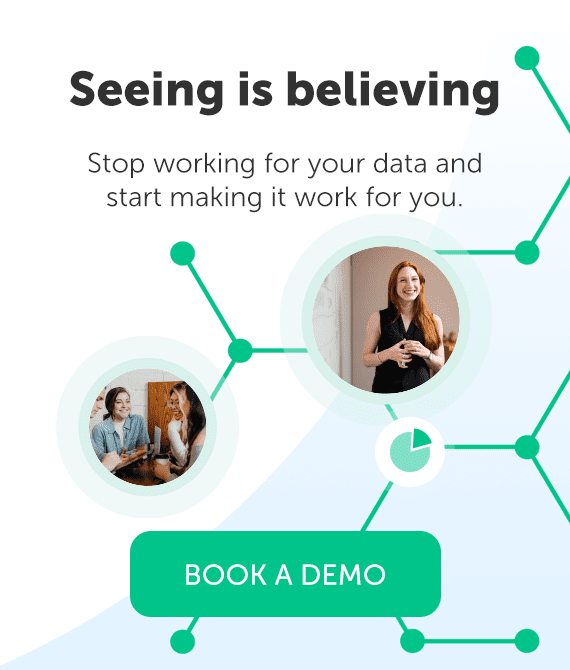In the legal services market, growth has stalled, corporate clients are taking their legal needs in house and independent law firms are losing their share of the market.
But with the right strategic focus and insight, your firm can stem the tide, raise your visibility and lock down new business.
Need a place to start? Read on for nine golden nuggets of advice from renowned legal marketing experts.
- Clients Hire Lawyers, Not Firms – John Remsen Jr.
- Increase Relationship ROI Through Technology – Frank Strong
- Automate Processes Through Artificial Intelligence (AI) – Jill S. Weber
- Try a One-to-One Approach – David Ackert
- Take Advantage of Social Selling – Vanessa Hill
- Create a Content Marketing Strategy – Michele Ruiz
- Support Better Collaboration – Heidi K. Gardner
- Share Your Hero Moments – Yolanda Cartusciello
- Actively Seek Client Feedback – Joshua Lenon
1. Clients Hire Lawyers, Not Firms – John Remsen Jr.

John Remsen Jr., the president and CEO of Managing Partner Forum, suggests doubling down on relationships.
“Generally, clients hire lawyers, not law firms. And they hire lawyers they know, like and trust,” he explained. “Looking ahead to 2020, building and maintaining trusted relationships—especially with current clients and referral sources–will become more important than ever.”
“It starts with demonstrating that you care by delivering great service, by knowing your client, her business and her industry,” he continued. “Beyond that, visit your clients on a regular basis. Break bread with your key contacts from time to time. Invest in relationships. You can’t buy them. They must be earned over time.”
2. Increase Relationship ROI Through Technology – Frank Strong

Founder and President of Sword and the Script Media, LLC, Frank Strong, believes technology needs to play a bigger role in relationship development and management, helping firms get a greater ROI from their contacts.
He predicts that “by 2020, most large law firms will reaffirm that relationships still matter in law firm business development, but how they manage those relationships will be heavily augmented with technology.”
For example, relationship analytics tools automatically track and measure the activity and connections of all of your firm’s relationships to determine whether your firm’s relationships are growing stronger or declining. Based on the health of your relationships, your team can then proactively manage important accounts or protect at-risk contacts from going with your competition.
3. Automate Processes Through Artificial Intelligence (AI) – Jill S. Weber

Jill S. Weber is the chief marketing and business development officer for law firm business development, and the past president of the Legal Marketing Association. And she’s another proponent of technology.
Weber believes law firms need to utilize AI technology to increase lawyer productivity and provide superior service.
“We’re starting to see some law firms implement what I call AI platforms,” she said. “This is where processes that might have been handled manually by a team of lawyers can now be automated.”
“They can do things via technology that reduces the time it takes to get clients an answer, significantly reduces client cost, and enables access to information 24/7,” Weber added. “Clients will no longer have to wait for a lawyer to call them back. This technology is just beginning to develop and emerge for law firms.”
For example, the average CRM user spends 5.5 hours each week on manual data entry tasks. But CRM automation tools, like Introhive, eliminate those mundane data entry and management tasks. That’s valuable time back for both lawyers and partners.
Introhive’s customer Fenwick & West, LLP, a California-based law firm with over 350 attorneys, used Introhive’s relationship intelligence and AI-powered automation to increase efficiency across their marketing and business development functions.
Specifically, they integrated Introhive data with their CRM and financial system, and used tools like Tableau business intelligence (BI) platform and Excel to analyze the firm’s widespread data to improve data integrity, contact management and relationship intelligence. Read their story.
4. Try a One-to-One Approach – David Ackert

David Ackert, the president of Ackert Inc., advises law firms to revisit the basics with more one-to-one marketing efforts versus mass marketing strategies.
“The most effective revenue generation strategies across lawyer and firm demographics involve a one-to-one rather than a one-to-many approach,” Ackert said. “Individual business development conversations with clients and referral sources generate better results than one-to-many marketing activities, like advertising and PR, with the noteworthy exception of thought leadership, which is often used initiate one-to-one conversations on topical issues.”
5. Take Advantage of Social Selling – Vanessa Hill

Vanessa Hill, marketing coordinator for McManis Faulkner, a major law firm in Silicon Valley, credits social media and social selling for her firm’s marketing success.
“An active social media presence is just as important as your firm’s website,” she said.
Vanessa encourages lawyers to pick a social media platform that will benefit the firm and their connections—and to stick to it.
Firm’s marketing teams should then help lawyers share valuable content, she said, by making it easily accessible through employee advocacy platforms.
6. Create a Content Marketing Strategy – Michele Ruiz

Award-winning broadcast journalist and author of “Content Marketing for Lawyers,” Michele Ruiz, believes becoming a thought leader will help firms grow.
“The firms that have quality content online, and an effective social media strategy to distribute that content, are building their firm brand and their personal brand—and a strong book of business—effectively and cost-efficiently,” Ruiz said.
“They are also winning clients over their competition,” she added. “Here’s the big takeaway: a content marketing strategy that is client-centric helps not only attract clients, but [also] helps retain clients.”
7. Support Better Collaboration – Heidi K. Gardner

Heidi K. Gardner, a distinguished fellow and lecturer on law at Harvard Law School, sees the need for firms to bring lawyers together.
“Lawyers who collaborate earn higher margins, build trust with their colleagues, gain access to more lucrative clients, and attract more cutting-edge work,” Gardner said. “Lawyers who want to operate in this way need to share marketing and business development information with each other. Those who don’t collaborate are missing out on significant growth, revenues, and profits—and risk that their siloed work becomes commoditized.”
8. Share Your Hero Moments – Yolanda Cartusciello

According to Yolanda Cartusciello, partner at PP&C Consulting, sharing stories of past success is the key to motivating prospects and partners.
“Tell the ‘hero stories’ about the success that sharing has brought to the firm,” she advised. “Demonstrate that it has brought more money, work, and prestige to the firm. That may motivate partners, as well.”
9. Actively Seek Client Feedback – Joshua Lenon

Joshua Lenon, the lawyer in residence and data protection officer at Clio, knows that firm growth isn’t all about sales, it’s also about retention.
“Begin soliciting feedback formally from clients,” he suggested. “Firms that listen to client feedback have a 30 percent higher client retention rate.”
And considering the fact that improving your retention rate by just 5 percent has been known to increase profits by 25 to 95 percent, listening and acting on client feedback isn’t something law firms can ignore.
What’s Next?
Today’s legal market is undergoing a significant shift. If you’re in the process of creating your firm’s marketing plan, consider asking for client feedback, demonstrating case studies and encouraging collaboration. Request a demo from Introhive for a peek under the hood of CRM data automation.
And download our Legal Marketing Playbook for even more can’t-lose strategies on how to market your law firm.





